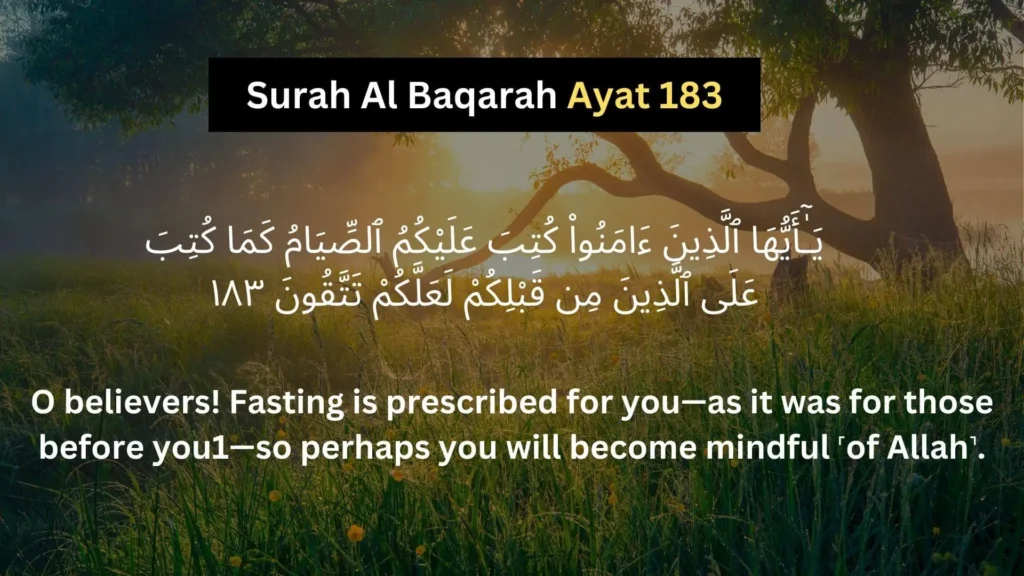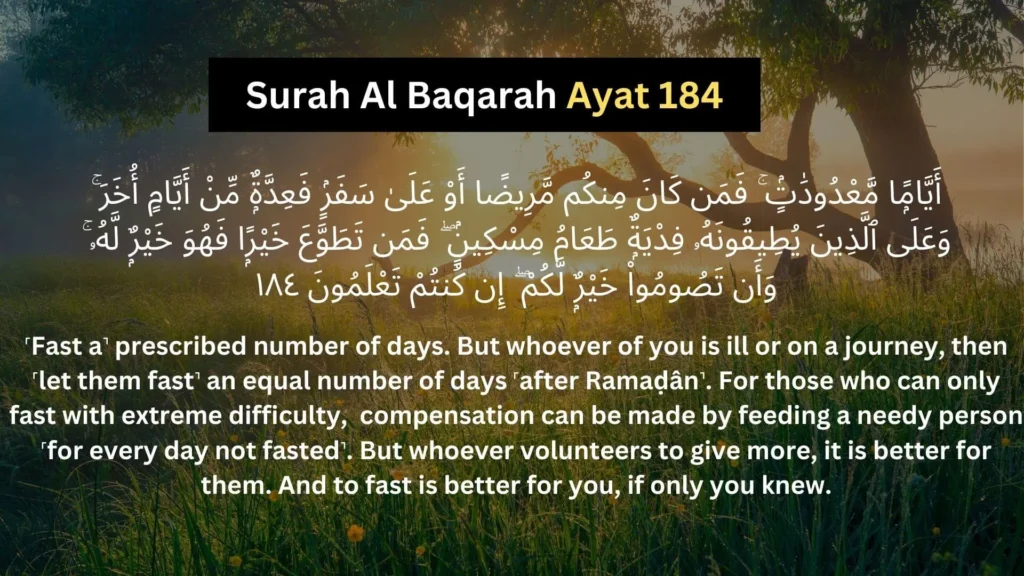10 Importance Of Ramadan Fasting In Islam

Every year when ramadan starts, our feelings are different because we all know it is the month we easily do good deeds. However, some Muslims are unfortunate as they do not fully benefit from Ramadan, and the holy month passes in the blink of an eye.
I easily understand why they do that because they do not know what are the benefits of ramadan, prayers, the Quran, and fasting. In this article, we especially cover the topic of fasting and also tell you the importance and benefits of ramadan fasting in Islam.
So, let’s move to the main and most important topic of this blessed month.
Why fasting is important in Islam?
Fasting, or “saum” صوم in Arabic, holds immense importance in Islam, encompassing spiritual, physical, and social benefits. It is obligatory for Muslims in ramadan because this is one of the five pillars of Islam. Every Muslim knows that the fasting has many benefits like it teaches us to control ourselves, make strong faith, and helps us easily avoid any sins by abstaining from food and drinks.
What does the Quran say about fasting?
Allah Almighty said in surah al baqarah:
Note: This is the Tafseer of these ayat:

183. When Allah says: یایھا الذین امنو It means Allah addresses everyone who believes, what do they tell us? They tell us fasting is obligatory for you, as it is obligatory for those (Like the ummah of Hazrat Musa AS and Hazrat Essa AS) before you because Fasting makes a person pious.

184. In this verse, for The person who is sick and or on the journey, Fasting is not obligatory, but he will complete the counting of the fast later. Due to the lack of habit of fasting in early Islam, even the person who easily fast were given permission to give food to a poor person in return if they did not fast, but later in the second verse, Allah clearly said. That whoever finds it among you should fast in this month and this is the ruling, but for the chronically ill, it is still the ruling that he should pay fidya. It means that he should not fast, but later make up for the fast.

185. One of the characteristics of this month is that the Holy Qur’an was revealed in Ramadan. Further, Allah Almighty says that whoever is sick or a traveler, in Ramadan, the fast is not obligatory but he can fast after Ramadhan. Allah deals with us with goodness, deals with ease, and does not deal with hardship.
5 golden rules of fasting
Here are the 5 golden rules of fasting:
- Intention (Niyyah): Before dawn, one must make a sincere intention to fast for the sake of Allah.
- Abstaining from Food, Drink, and Intimacy: From dawn until sunset, one must refrain from consuming food, drink, and engaging in marital relations.
- Avoiding Negative Behavior: Fasting entails not only refraining from physical nourishment but also avoiding negative behaviors such as lying, gossiping, and anger.
- Increased Acts of Worship: Ramadan is a time for increased devotion, including additional prayers, Quran recitation, and acts of charity.
- Breaking the Fast Appropriately: At sunset, the fast is broken with dates or water followed by a balanced meal. It is important to break the fast in moderation and gratitude and try to conduct your life according to the life of Prophet Muhammad PBUH.
10 Importance of ramadan fasting in Islam
Here are 10 important of Ramadan that everybody should know:
1. Allah has ordered us to fast
The greatest importance of fasting in the month of ramadan is that Allah has ordered us to fast in the blessed month and this order is only for one month in a year. Fasting is one of the five pillars of Islam, that is, the person who does not perform this obligatory act will be considered a sinner and will be punished in the Hereafter, but a person who is not an adult, who is sick or a traveler, Fasting is not obligatory on him. This is Islam, the most beautiful religion that does not force and it is the only religion that is based on nature.
And one important thing that you should know about the obligation of fasting in Ramadan is that the obligation of fasting began in 2 Hijri in the month of Shaban.
2. The Special Gate of Paradise
The fasting person will be blessed with many qualities and Allah has created a special door in Paradise which is called Bab-ar-Rayyan. Through this gate, only those who fast will be able to enter, and after that, the door will be closed. This is the protocol only for those who fast in the blessed Ramadan and worship Allah.
3. Self-discipline with fasting
In other months, we eat and drink without any control. Whenever food is brought to us, we start eating. But Ramadan teaches us discipline.
Everyone knows that when we eat without discipline, it is bad for our strength. But Ramadan, which is a month of fasting, teaches us discipline. The way we have suhoor and eat during it, and then break the fast, then eat, and in between, we control ourselves.
Fasting teaches us to control ourselves from sins, no matter how big or small. This control teaches us how we can improve our lives by controlling all aspects and following the method of the Prophet Muhammad PBUH (peace and blessings of Allah be upon him).
4. Health benefits of fasting
Fasting helps maintain our body weight while blessing us with improved spiritual and physical health each day. The benefits of fasting are numerous and extensively discussed by researchers.
Studies suggest that adding fasting to your routine can be particularly advantageous for heart health. One analysis showed that alternate-day fasting might lower total cholesterol and various heart disease risk factors in overweight individuals, compared to those not fasting.
5. Easily complete 5 prayers through fasting
Fasting makes it easier to pray because a person’s conscience blames him that he has followed one of the pillars of Islam but not another pillar. Through fasting, majority of the muslims also pray Taraweeh, which is an optional prayer.
6. Dua is accepted through fasting
This is a great importance of dua in Ramadan. According to a hadith narrated by Prophet Muhammad PBUH said that in the month of Ramadan, Allah frees countless of His servants from Hell every day and every night. He accepts the prayers of every Muslim every day and night, so it’s important for us that when we fast in ramadan, we should focus on our dua because as our prophet SAW said: Allah accepts dua every day and night.
7. Forgiveness through fasting on judgment day
In 11 months except for ramadan, sometimes mistakes are made and sins are committed. To forgive these mistakes, Ramadan is a blessing for us, because there is a meaning in the hadith of the Prophet Muhammad PBUH:
Whoever keeps the fasts of Ramadan in a state of faith and for the pleasure of Allah, his past sins are forgiven.
8. Fasting Helps Avoid Bad Habits Later
Ramadan fasting is akin to training; just as we train to improve ourselves within a specific timeframe, Ramadan serves as a month dedicated to avoiding sins. It provides training on how to abstain from sin throughout the year, helping us develop self-control.
9. Caring for the Poor and Hungry
When we fast, we know that just as we will eat after a certain time during iftar, some people go without food for days, weeks, or even months. This awareness softens our hearts. Fasting inspires us to help the less fortunate so that they also can eat, drink, and express gratitude to Allah. This is the reason why one of the pillars of Islam is to pay Zakat.
10. Increases Taqwa by Filling Spiritual Reservoirs
Taqwa means Fear of Allah, When we do good deeds and have the fear of Allah in our hearts, then Allah removes us from many problems and troubles. Taqwa can be cultivated in various ways, one of which is fasting. One of the benefits of fasting during Ramadan is that it enables a person to develop taqwa.
Conclusion
In conclusion, I advise you to make every moment better in Ramadan. It’s an opportunity for success in this world and the hereafter. One important practice that should be performed is the evening prayer called the Taraweeh prayer, as it holds numerous benefits. If your previous Ramadan wasn’t satisfactory, strive to make this one better in this year.
Frequently Asked Questions (FAQs)
